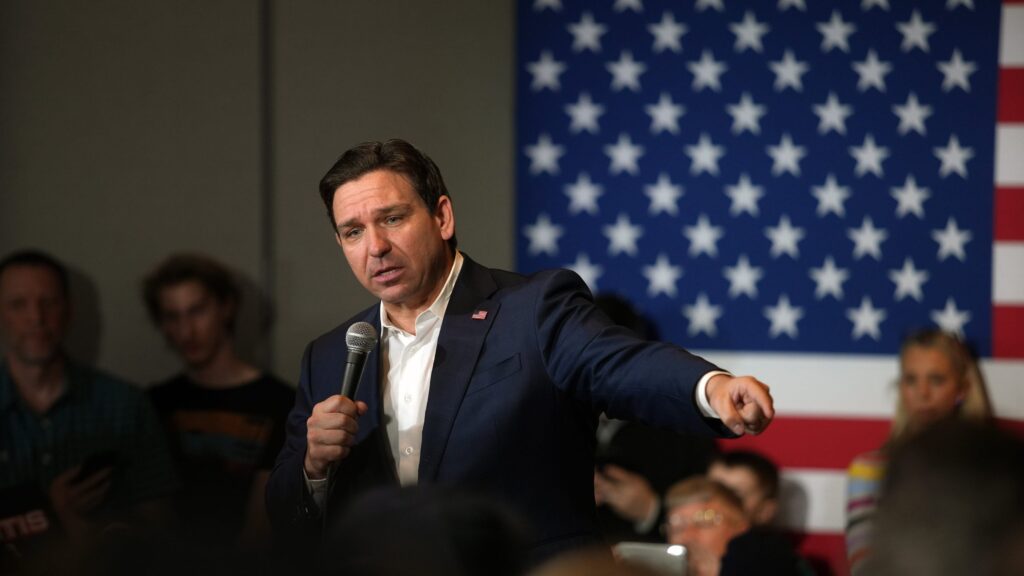Florida is an awfully smelly place. The best description I’ve heard about being outdoors in Florida during the summer is that it’s like living inside of somebody’s mouth: It’s way too moist, and there’s something decaying in the area but you’re not quite sure where it is.
So anything to make Florida smell less like one big outdoor compost heap is worth a try.
For millions of Floridians who live near the Caloosahatchee and St. Lucie rivers and their estuaries, we are now entering the toxic blue-green algae blooming season.
It’s the time of year when hot water temperatures and nutrient contamination from agricultural land, fertilizer runoff and leaky septic tanks produce a noxious slime that kills sea life and emits an ammonia odor that sickens some people and drives others indoors.
But that’s not the only smell that DeSantis is sounding the alarm about.
Lately, he’s been railing about smelly marijuana. Or to put it another way, he’s pivoting from “anti-woke” to “anti-smoke.”
I sympathize with DeSantis. He’s finding himself out of step with Floridians on a couple of key issues coming up in voter referendums this year.
He signed into law a six-week abortion ban, which is about to go into effect next month with a majority of Florida voters against it, according to polling.
Most Florida voters don’t want a six-week abortion ban, but they do want recreational marijuana, which finds DeSantis, once again, on the wrong side of popular opinion.
In the past, DeSantis used scare tactics to lobby against legalizing marijuana.
“I think what’s happened is this stuff is very potent now,” DeSantis argued a year ago. “I think when young people get it, I think it’s a real, real problem, and I think it’s a lot different than stuff that people were using 30, 40 years ago.”
But now, DeSantis is leaning hard on pot being too stinky.
“This state will start to smell like marijuana in our cities and towns,” he said recently. “It will reduce the quality of life.”
DeSantis has even conducted some field research on the matter.
“I’ve gone to some of these cities that have had this everywhere. It smells,” DeSantis said. “I don’t want to be able to go walk in front of shops and have this. I don’t want every hotel to really smell.”
Don’t hide our musty carpet smell!
I think DeSantis is onto something here. It’s time to create and convene the Florida Stank Task Force, a group of dedicated Floridians with sensitive noses who are dedicated to making the state smell better.
Even without the marijuana, it smells pretty strong sometimes. And I’m not just talking about the smells of road kill iguanas, the people who go straight from the gym to Publix, or the overpowering cinnamon stink of Cracker Barrel stores.
Sure, you might argue that a gentle wafting of stink weed in the air might help to mask an even worse odor in some places.
Or that DeSantis’ stink gambit overlooks the provision in the ballot amendment that allows the smell to be regulated, argued Smart & Safe Florida, the group behind the ballot issue.
“We agree with Governor DeSantis and don’t want Florida to become like California and New York where public outdoor smoking is prevalent,” the group posted on social media last month. “This is why we added language giving the Florida legislature the authority to limit outdoor and public consumption just like Florida does for smoking tobacco products.”
But you can’t trust Florida lawmakers to do the right thing, especially when there’s a lot of money involved.
If you look at the donations behind the marijuana referendum, Amendment 3 on the November ballot, the forces pushing for it have raised $54.9 million, while those opposing have raised a paltry $3,800.
And then there’s the tax ramifications of legalizing pot. It’s estimated to bring an additional $196 million per year to state and local governments, based on other states’ experiences.
So, in the end, it may be that the smell of money is what’s really going to be overpowering in Florida.
H/T: www.usatoday.com



